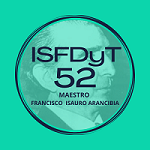A fin de posibilitar y fortalecer la adquisición de las competencias requeridas en la trayectoria del Profesorado de Inglés, se desarrolla un Curso de Formación Básica previsto con la duración de un Ciclo Lectivo de treinta y dos (32) semanas y con una carga horaria de ocho (8) horas reloj semanales.
¿A quién está dirigido el CUFBA?
El CUFBA está dirigido a estudiantes ingresantes que deseen fortalecer sus conocimientos de la lengua inglesa antes de ingresar a 1° AÑO, o de cursar unidades curriculares de la especificidad.
El Curso de Formación Básica (CUFBA) está organizado en tres áreas:
1) Comprensión de textos (3 módulos semanales)
2) Expresión Escrita (3 módulos semanales)
3) Expresión Oral (2 módulos semanales)
· Expectativas de Logro
- Comprensión de un texto escrito desconocido, reseñando sus ideas principales.
- Comprensión de un texto oral desconocido, reseñando sus ideas principales.
- Redacción de una carta breve e informal, narración o descripción sobre un tema asignado, desarrollado con coherencia y en respuesta al propósito del texto.
- Comentario sobre un texto leído con anterioridad (artículo, cuento)
- Respuesta al discurso imprevisible de un interlocutor sobre temas de la vida cotidiana.
- Conversación fluida con aproximación a la corrección fonética, léxica y gramatical y con adecuación al contexto.


